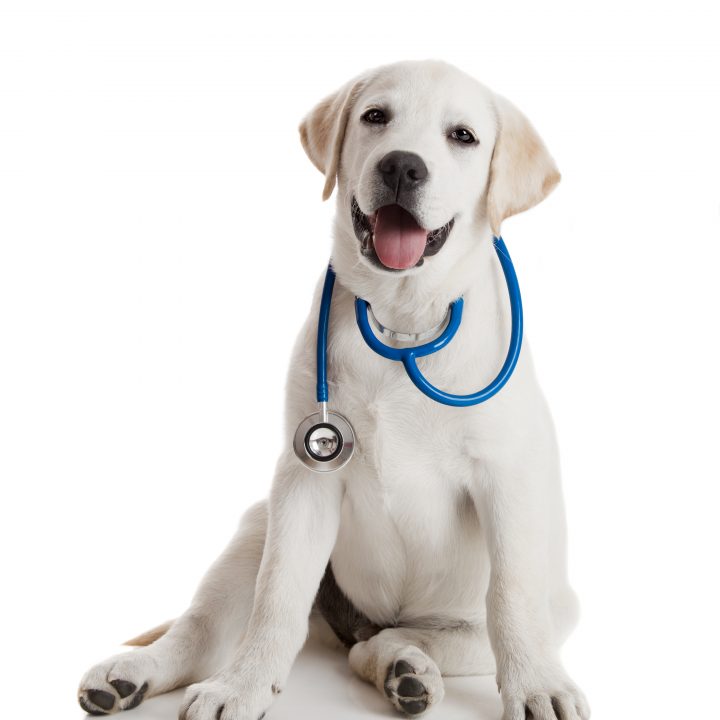The dog stool sample-possibly the most dreaded veterinary request of dog parents worldwide-can you bring in a fecal sample? What most people perceive as a vet’s torturous request is actually an eye-opening diagnostic tool for your dog’s general health and all things digestive. Different stool tests for dogs can be run by your veterinarian to assess your pet’s health. A stool sample provides insight into your dog’s digestive system.
Optimal outcomes depend on the caliber of the provided stool sample. A stool sample must be fresher than 24 hours old and must be stored in a refrigerator (NOT a freezer) until it is submitted. For submission to the lab, it is ideal to have at least a teaspoon of feces. It doesn’t matter if the sample contains any leaves, debris, or litter. If you use clumping cat litter, make sure the sample is actually fecal matter and not a clump of urine. *A fresh, non-refrigerated stool sample is the best way to identify some intestinal parasites. Your veterinarian will let you know if that is necessary. Fecal samples may be delivered to the VHC Small Animal Receiving Desk from 8 a.m. to noon, Monday through Friday. m. to 3 p. m. If you have any questions, feel free to contact us at 785-532-5690.
Fecal examinations are crucial for maintaining your pet’s health. Three to four fecal examinations should be performed during the first year of life for pets under a year old. Adult animals’ annual wellness routines should include at least two fecal examinations. Depending on environmental exposure and the use/type of preventives, additional fecal examinations for your adult pet may be required. It is a good idea to bring a fresh stool sample with you to your pet’s appointment because fecal exams are a crucial diagnostic procedure for any animal exhibiting diarrhea, weight loss, or vomiting.
Which pets should have poop samples tested?
At least once a year, during their annual visit, veterinarians should examine a stool sample from pets.
Your veterinarian may use a device known as a fecal loop to obtain a sample from your dog if you are unable to collect poop samples from your yard.
Similar to a small wand with a small loop at the end, a fecal loop
The wand can be inserted into your dog’s rectum by your veterinarian to collect a sample of stool.

Clubs Offering:
Fecal Exams Can Detect Problems Before They Become Tragedies
According to studies, parasite exposure is higher than ever, making an annual fecal exam crucial.
A healthy yearly physical should include a fresh feces examination. Bring a fresh sample that is 4 to 6 hours old to your dog’s veterinarian instead of a dried-out “moon rock” or “fossil poop.” Many of the potential parasites are killed by drying out and dehydrating, and their presence may be covered up.
According to recent research, the majority of municipal city parks and open spaces have a high prevalence of canine gastrointestinal parasites, including worms and protozoans like Giardia. Additionally, ponds, lakes, creeks, and streams in the area that are close to densely populated areas frequently have parasites that can harm our canine companions.
Additional exposure opportunities include dog parks, boarding, daycare centers, and salons. If you do engage in activities like retrieving, hiking, cross-country skiing, jogging, agility, dog shows, etc. with your dog , your dog’s exposure is even higher.
Infestation with intestinal parasites is no minor detail. Dogs who have parasites may become uneasy, agitated, and develop other, more serious conditions. Some can even be transmitted to humans.
Therefore, your dog’s annual physical must include a fecal examination.
This article first appeared in the AKC Family Dog’s “Ask Dr. Kevin” column by Kevin Fitzgerald, DVM. https://www. akc. org/wp-admin/admin-ajax. php Get Your Free AKC eBook.
FAQ
How long is a dog’s stool sample good for?
A stool sample must be fresher than 24 hours old and must be stored in a refrigerator (NOT a freezer) until it is submitted. For submission to the lab, it is ideal to have at least a teaspoon of feces.
How long can a stool sample be kept before testing?
Instructions for the Stool Collection for Culture and Sensitivity: DO NOT REFRIGERATE; LEAVE AT ROOM TEMPERATURE Specimen must be returned to lab within 24 hours. Specimen’s greater than 96 hours (4 DAYS) will be rejected.
How recent does a dog’s stool sample need to be?
Therefore, we advise obtaining the sample as soon as possible from the source, protecting it by properly sealing it in a plastic baggie, and storing it for up to 12 to 24 hours in a cool environment. If you’re going over 4-8 hours, that means the refrigerator.
How do you store dog poop for testing?
- A Ziploc bag (double bag it to be safe)
- A fecal container from your veterinarian’s office.
- A sealed plastic (disposable) container.
- A doggy poop bag.